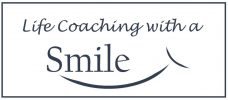There can be serious health effects of change in your life. Did you know that even years after a significant change you might develop depression or PTSD, especially if you have not tried to adapt to the change?

In most of our lives, there are events that require us to make changes that might not be traumatic but are still very challenging. While you may not have control over those events, you can and should control what you do about them. As with most things, ignoring them will often make them worse and cause unwanted stress, pain, or even illness.
An unexpected event in your life can alter the way you see the world, how you treat people, even your beliefs.
“Sometimes these events change how you see yourself. Some of these events that can trigger this distress include:
- illness, injury or developing a long term medical condition
- a job loss or new job
- a relationship break-up
- change in family make-up (for example, a new baby, blended family, or the separation of parents)
- the death of a close friend or family member
- a change in living conditions. “ depression.org.nz
Not since World War II has the entire world gone through the kind of upheaval and change that resulted from the COVID pandemic. Nothing has “affected as many people at the same time as during the social and economic lockdown which was put into place in 2020, in order to curb the COVID-19 pandemic. The crisis linked to COVID-19 has the particularity of bringing about multi-scale changes: it goes beyond the health dimension alone, and constitutes an economic, political, and social crisis.” ncbi.nlm.nih.gov
(By the way, “particularity” really is a word—I looked it up.)
The Hidden Health Effects of COVID
Much research continues to quantify the health effects of change resulting from COVID. Two important coping related issues were reported in the research article above. People with strong family ties, religious or cultural beliefs or strong personal values fared better dealing with the changes brought on by COVID. In addition, people who were able to maintain a previous level of physical exercise remained healthier and also reported less conflict and stress.
The crisis of COVID may be behind us but the “COVID effect” will continue for years. Doctors are diagnosing people today with PTSD and other stress-related disorders stemming from the changes they encountered due to COVID.
“Change is the only constant in life. One’s ability to adapt to those changes will determine your success in life.”— Benjamin Franklin
But, it’s really more than just your future success that’s at stake. We know that if we ignore change or don’t try to adapt to change, we can become Ill, from minor headaches to a major breakdowns.
The following three ideas inspired by the research underway in the aftermath of COVID, can help guard against the harmful health effects of change in your life.
Three Tips for Protecting Your Health
- Be flexible. Realize change is a constant and our lives are unpredictable from day to day maybe hour to hour. This can help you deal with unexpected events. Setting goals is great but don’t be adverse to adjusting your goals to accommodate change. Be kind to yourself and keep an open mind, flip the script. Look for the good that changes could bring. An unexpected move could mean new adventures. Be flexible and let go of expectations. You could make a different routine less scary and you might enjoy it. Almost 70%of people forced to work at home now love it. Be flexible enough to know when it’s time to reach out for help from friends, family or professionals.
- Honor yourself. The following quote says this best: “Values are like lighthouses; they are signals giving us direction, meaning, and purpose.” — Recruiter Journal. Your values can help you in decision-making, conflict management, and problem solving. They can unite you and your family and be a comfort in times of loss. Your values guide you like a compass. When you feel lost, depend on your values to guide you through.
- Let’s get physical. Regular exercise is important every day for everyone. It serves an especially important function in dealing with change. Exercise as we know, helps fight depression. Walking can help with mindfulness in reducing stress and building resilience. A regular exercise routine is something that can serve as a familiar anchor in a sea of change and it gives us a routine that we can build our changes around. Moreover, it can help keep us healthy. “”Exercise not only changes your body, it changes your mind, your attitude and your mood.” –Unknown
A SAD Health Effect of Change
One last thing about a particular type pf change: In a couple of weeks, daylight saving time ends and we will set our clocks back an hour. As we make this time-change we will lose an hour of daylight.
“When this happens, some people may experience emerging feelings of sadness and sluggishness, and fluctuations in weight. If you suffer from these symptoms, you may have Seasonal Affective Disorder (SAD), a type of depression related to changes in the seasons. SAD affects an estimated 10 million Americans, with women four times more likely to be diagnosed with it than men.” —bu.edu
The depression from this change is real, affecting one out of every 20 people. Of these half or more go untreated. The article above is very comprehensive and I recommend it. If you suspect you might suffer from SAD contact your physician. There are effective treatments, light therapy, talk therapy, and medication.
Change is constant. Look behind you and see what has changed, look where you are, what got you here? Change is the law of our life and being able to adapt means you can change your life by changing your attitude.
Related Articles:
